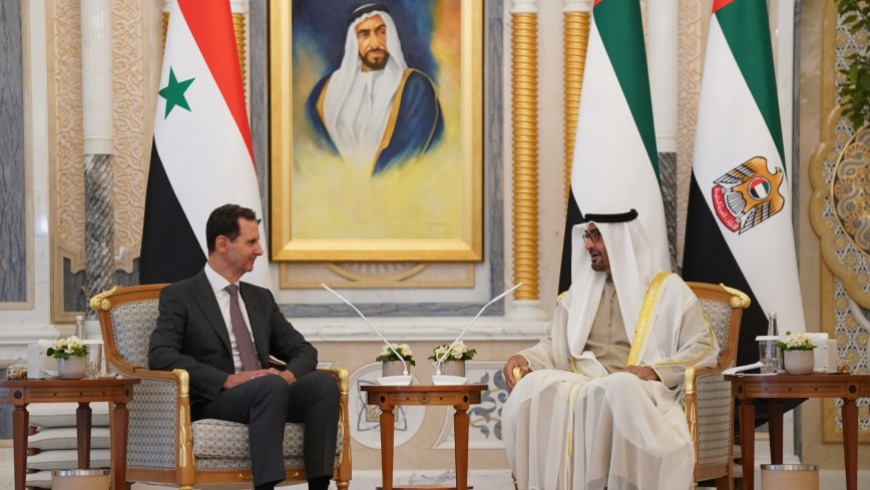Anwar Gargash, a diplomatic adviser to the UAE president, expressed his support for the Syrian regime’s return to the Arab League as the right decision. However, he emphasized that it is essential for Damascus to demonstrate a commitment to addressing the concerns of neighbouring countries, including issues related to refugees and Captagon smuggling.
Gargash made this announcement during a seminar titled “The Arab Region: Scenario and Future” held as part of the Arab Media Forum in Dubai. He underscored the UAE’s significant role in facilitating the Syrian regime’s reintegration into the Arab community, as reported by the Emirati newspaper al-Ain News.”
He viewed the Syrian regime’s return to the Arab League as the initial step in reinstating Syria’s Arab role, highlighting the need for Arab support for this decision. Simultaneously, he stressed that the Syrian government must proactively engage in addressing these concerns, with the ultimate responsibility lying with Arab nations.
“We remain particularly concerned about the Captagon issue, the situation in Lebanon and Jordan, and the repatriation of refugees,” Gargash noted. He acknowledged that the resurgence of the Arab role in Syria would be a gradual process, requiring time to take effect.
In recent days, there has been criticism within the Arab world regarding the Syrian regime’s response to Arab initiatives aimed at normalizing relations. Key issues include combating Captagon smuggling, facilitating the return of refugees, and engaging in a political solution to the ongoing conflict.
King Abdullah II of Jordan expressed doubts about Syrian President Bashar al-Assad’s full control over the country, particularly concerning drug and arms smuggling into Jordan. Additionally, a Saudi newspaper, Asharq al-Awsat, accused the Syrian regime of failing to address security and political concerns, such as stopping contraband exports and participating in the transition towards a political solution in Syria.
The Syrian regime has also been criticized for shifting blame onto the international community for not accepting refugees and not contributing to Syria’s reconstruction.
Regarding the cessation of contact with the Syrian regime, Arab diplomatic sources revealed that the Arab Liaison Committee had informed the Syrian regime to halt contact while waiting for a response to the Arab initiative for a solution in Syria. This cessation of contact is not equivalent to cutting off relations with the regime but rather a pause in the pursuit of the proposed Arab League solution.
The committee may convene a meeting to evaluate its progress in the near future, excluding the participation of Syria’s Foreign Minister, Faisal Mekdad. The issue of declaring the Arab initiative for a solution in Syria as a failure is not currently on the table.
In May, Arab foreign ministers established a ministerial liaison committee, consisting of countries like Jordan, Saudi Arabia, Iraq, Egypt, and the Secretary-General of the Arab League. This committee was formed to oversee the implementation of the Amman statement and engage in direct dialogue with the Syrian regime to reach a comprehensive political solution in Syria.
Syrian President Bashar al-Assad, in an interview broadcast by Sky News in early August, criticized the Arab League, stating his lack of interest in positively engaging with an Arab initiative to resolve the Syrian crisis. He characterized Arab-Arab relations as superficial and called for practical ideas and solutions to address regional challenges, emphasizing that the nature of these relations needed to change for Syria to consider rejoining the Arab League.
This article was translated and edited by The Syrian Observer. The Syrian Observer has not verified the content of this story. Responsibility for the information and views set out in this article lies entirely with the author.


